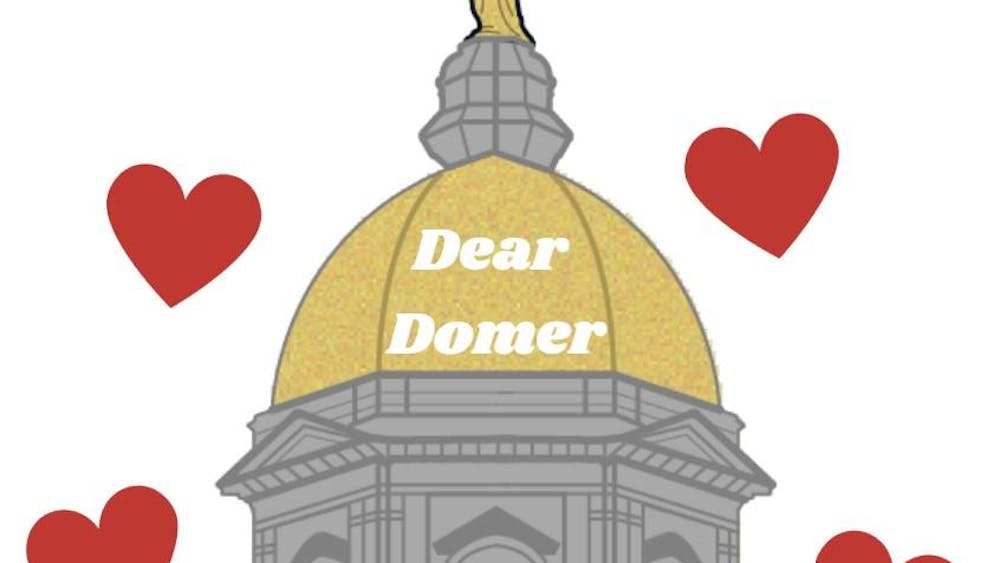What is diversity? A number? A feeling? At Notre Dame, it can feel like an obligation. The University reports that 80 percent of the current student population is Catholic. No matter what these numbers tell you, it is the feeling that means more to me. Do I feel at home? Do I feel like I can share my opinions? Unfortunately, at Notre Dame, I find more religious accommodation in my theology course than any other. At least in my theology class, people are forced to consider another perspective. Whereas, in my psychology and philosophy, my perspectives as a non-Christian aren’t usually taken into account. I agree that at a Catholic school, students should be required to learn about the culture and tradition of their school. However, there’s a difference between teaching and attempting to convert students. The goal set out by Fr. Hugh R. Page Jr., vice president and associate provost for undergraduate affairs and dean of the First Year of Studies, is to have “a chance to take courses that represent the entire landscape of humanistic achievement, and to do so with an eye toward discovering what their own unique calling, their vocation, happens to be.” So, why is Catholicism being pressured and forced in my courses? Freshman Caroline Cameron, a Methodist, says “Christianity is about making others feel the love of Christ. The essence of evangelizing is showing people the love of Christ and love for each other without pushing your ideals onto them. We want people to come to us with their love and passions, and join us in our beliefs. We don’t want to force people to share them.” The majority may be Catholic, but this doesn’t mean you can ignore the other 20 percent of the student population.
It isn’t only the non-Catholics that notice this overwhelming presence of Catholicism. When asked “what are the most noticeable pressures that you see at the University?” many of the students I interviewed agreed the Moreau First Year Experience Course and parietals were the most noticeable pressures. “I see parietals as a Catholic encroachment, 100 percent,” says Cameron. Du Lac describes parietals as a means of “[fostering] the personal and social development of students.” However, it seems to do the opposite. It can hinder male-female relations, by subjecting us to the premise that these relationships are merely sexual and should be secretive. “Some of the best conversations that I have had are at 3:30 a.m. [after] a Wednesday night in my dorm,” says freshman Allie Gatz. It wasn’t that the conversation was only with women, it was that creating a community can occur at any time. However, parietals put a strain on this. Instead, Notre Dame should look again at its claims of “fostering personal and social development.” They should consider that students should be allowed to have relationships with one another on their own terms, not ones forced to exist between the hours “before 9 a.m. on any day and [do not] extend beyond 2 a.m. on Friday and Saturday nights and midnight on Sunday through Thursday nights.” We are adults; we should be able to live and act like them.
Notre Dame should reconsider what it means to be Catholic. It’s understandable the University doesn’t want to be lenient about these things because they don’t want to be seen as non-secular. However, Notre Dame shouldn’t be strict on a Catholic subject like parietals, yet be completely lenient about other things (like alcohol). Where’s the consistency?
This begs the question, “When is it appropriate, in a Catholic university, to bring up religion?” I think it’s appropriate to require at least some semblance of Catholic tradition. I don’t believe that it should be as forced or overwhelming as it is. We did know that it was a Catholic school when we applied, but it isn’t required that we are Catholic to be here.
For some, solutions to this issue exist. Cameron says that “for the people that do feel pressured or that it is overwhelming, there are many options available. But, you have to take up those opportunities. We have the power to change it and do something about it.” On the other hand, Gatz wishes “that there were more options for non-Catholics. For example, non-denominational services on campus.” There isn’t going to be one solution to this problem, but it would be comforting to see the University take action. “I think what we are saying applies to Catholics as a whole, not just the University,” says Cameron. This lack of inclusion isn’t simply the University’s fault. I think Catholics all around the world need to take a look at the image they foster, and I believe one of inclusion is important.
Catholicism at Notre Dame
The views expressed in this column are those of the author and not necessarily those of The Observer.









